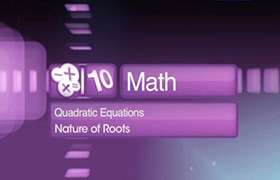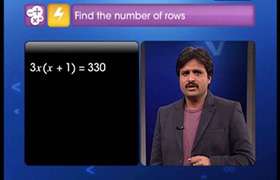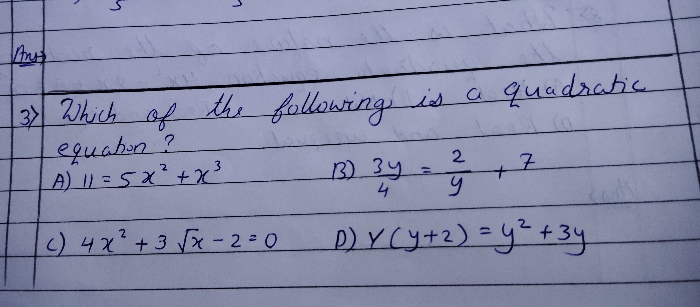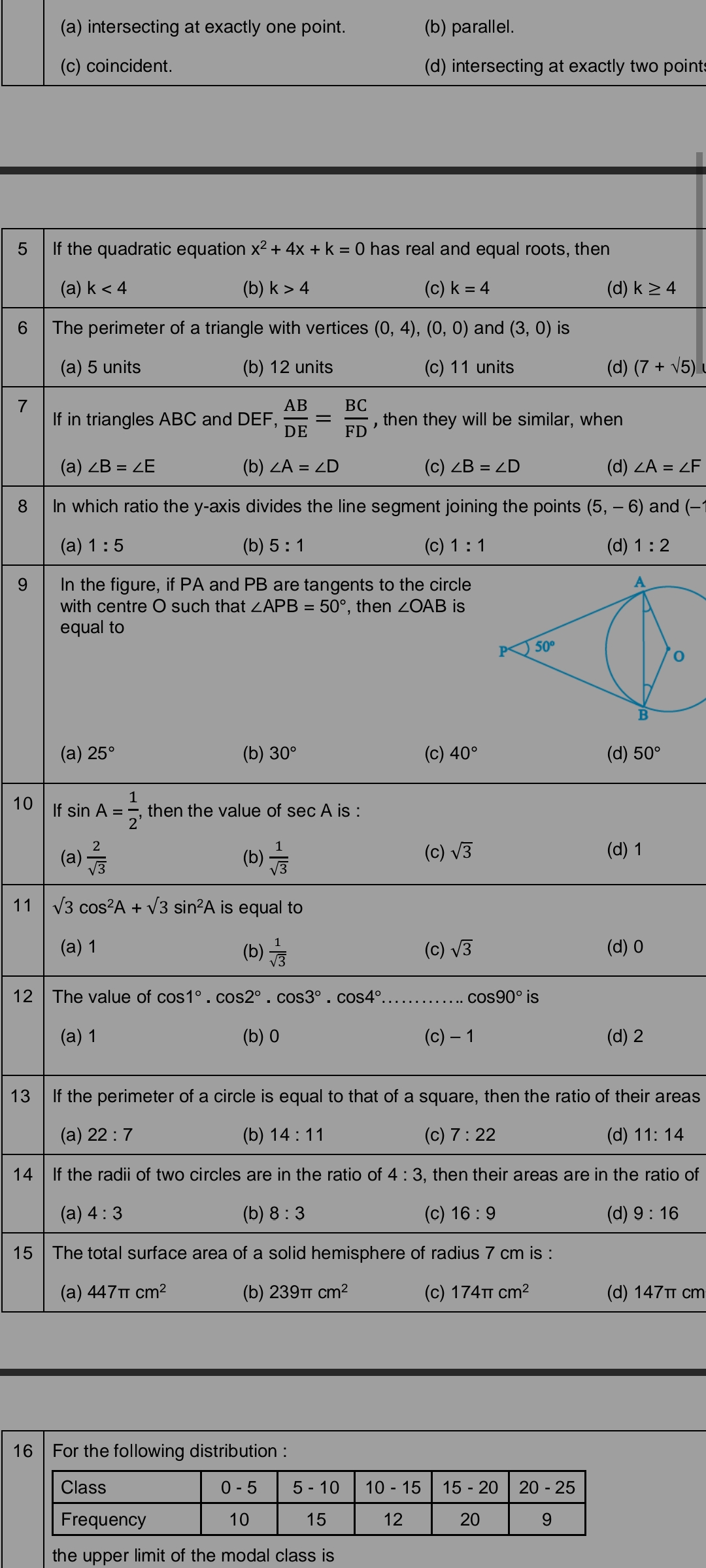CBSE Class 10 Answered
For what value of k the equation ----------------has real and equal roots?
Asked by maitreyi mishra | 20 Mar, 2011, 04:24: AM
Dear student,
Here, a = 4, b = -2(k+1), c = k+1
D= b2 - 4ac = 4(k+1)2 -16(k+1)
The given equation will have real and equal roots if D = 0.
Therefore, 4(k+1)2 -16(k+1) = 0
4(k+1) [k+1-4]=0
k+1 = 0 or k-3 = 0
Thus, k = -1 or k = 3
We hope that clarifies your query.
Regards,
Team
Team
TopperLearning
Answered by | 19 Mar, 2011, 10:48: PM
Application Videos
Concept Videos
CBSE 10 - Maths
Asked by rrajansinghakb199 | 08 Apr, 2024, 05:12: PM
CBSE 10 - Maths
Asked by afiyamallick12 | 23 Feb, 2024, 11:32: PM
CBSE 10 - Maths
Asked by goyelgurav | 18 Dec, 2023, 11:23: PM
CBSE 10 - Maths
Asked by mehraharshit.dk000 | 05 Oct, 2023, 08:05: PM
CBSE 10 - Maths
Asked by ruchipandey20071978 | 21 May, 2023, 10:00: PM
CBSE 10 - Maths
Asked by varma.renu9481 | 25 Jan, 2023, 04:11: PM
CBSE 10 - Maths
Asked by yogitamanojkumar | 09 Jan, 2023, 04:01: PM
CBSE 10 - Maths
Asked by nk.neetuhome | 18 Nov, 2022, 03:43: PM














